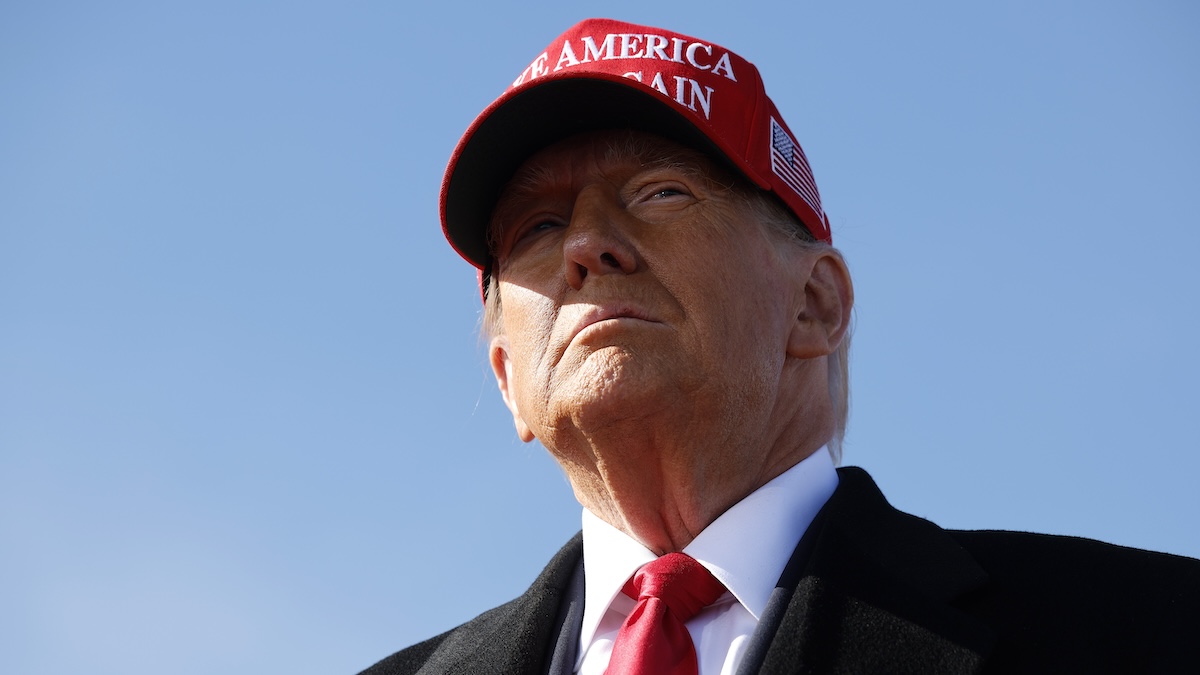‘President-elect immunity does not exist’: Prosecutors challenge Trump’s dismissed criminal charges

Despite Donald Trump’s best efforts, his Hush Money case is alive and well.
Lawyers from the office Manhattan DA Alvin Bragg wrote in a court filing “president-elect immunity does not exist,” challenging the defense’s notion that Trump’s status the United States’ incumbent president makes him immune to prosecution and conviction. Trump is currently contending with dozens of felonies, and was convicted by a jury earlier this year. While Trump’s defense team has urged presiding Judge Juan Merchan to vacate their client’s conviction, the prosecution argues that the motion should be dismissed, arguing that “prior to the defendant’s inauguration” there are “no grounds” to imbue him with presidential legal protection.
Trump’s defense team has argued that the lawsuit against their client is politically driven, and cite Joe Biden’s recent pardon of his son Hunter as reason to vacate the conviction. Hunter Biden was pardoned for a slew of tax and gun related offenses by his father, who, after agonizing over the decision, decided to issue the pardon in order to protect his son from what he believed to be political persecution. The move drew bipartisan criticism, and according to a survey, 8 out of 10 Americans believe that the younger Biden should not have been pardoned at all.
Trump’s legal tea is also critical of the notion that their client could be prosecuted after leaving office, implying that pressure from the legal Sword of Damocles hanging over his head will interfere with ability to carry out his duties as president. It “would be egregious and unlawful for this Court to hold the prospect of a 2029 sentencing over President Trump’s head while he continues his service to this Country,” Trump’s counsel wrote.
Prosecutors have fired back, accusing the defense of attempting to “effectively extend the period of (Trump’s) immunity to a time before his presidency, by wiping out the effects of an indictment and jury verdict that took place before he was even reelected President.” They argue that while Trump is indeed soon to take office, his future position should have no impact on his present conviction. Nevertheless, Trump’s defense team have been successfully able to postpone their client’s sentencing, and Judge Merchan has allowed them time to file a separate motion that cites the recent Supreme Court ruling that disallows presidents from being prosecuted for duties performed while in office.
Like much of Trump’s political career, the result of this legal battle is sure to set a historic precedent, for better or for worse. Donald Trump is the first presidential candidate to ever have been convicted of a felony, and notions of presidential immunity are making the particulars of this case particularly thorny. Prosecutors have cited the “novelty” of Trump’s historic position as grounds to move forward with the case, writing ” it would hardly be improper for this Court to exercise its inherent authority to consider novel remedies such as adopting a version of the Alabama rule in the context of this unique case.”
The “Alabama rule” in question is a legal mechanism known as “abatement,” generally reserved for conviction cases where a defendant dies after being found guilty but before sentencing. According to the DA’s office, the rule essentially “”abates the criminal proceedings without vacating the underlying conviction or dismissing the indictment.” In plain English, the prosecution is using the principle of abatement to suggest that should something unexpected happen to Trump (like his death, or, in this case, presidential election win) before the case ends, his conviction should still stand. Whatever happens, this case against Trump is already one for the history books.
Have a tip we should know? tips@themarysue.com